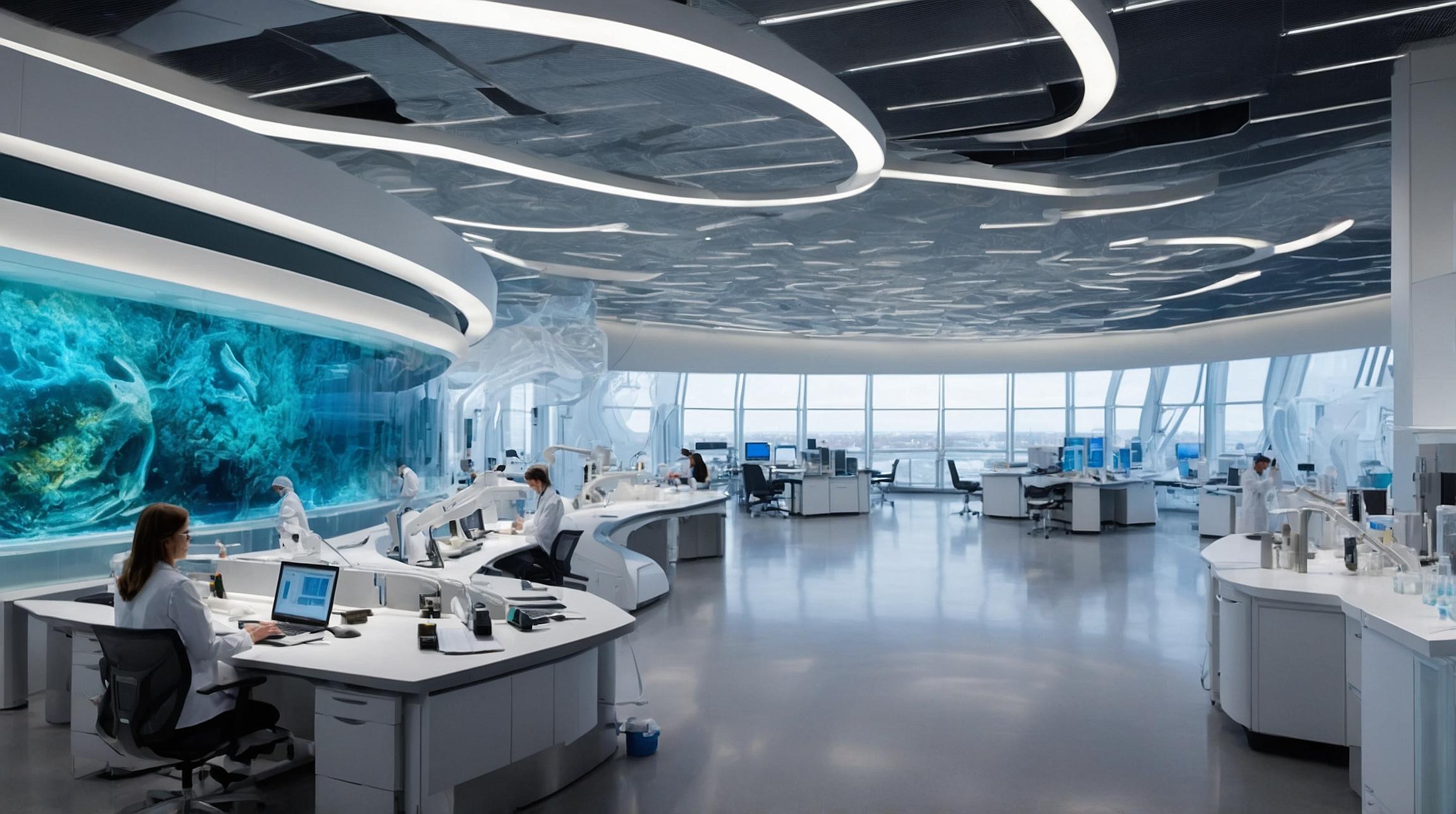Supernal’s leadership turnover highlights the pressures confronting startups in the nascent AAM industry. The path to scalable, safe, and economically viable urban air mobility solutions remains complex. Hyundai’s sustained investment signals confidence in the sector’s long-term potential despite short-term turbulence.!-- /wp:paragraph -->
Contents
FinOracleAI — Market ViewBroader Implications for the Advanced Air Mobility SectorFinOracleAI — Market ViewBroader Implications for the Advanced Air Mobility SectorFinOracleAI — Market ViewSupernal’s Difficult Year Amid Industry VolatilityBroader Implications for the Advanced Air Mobility SectorFinOracleAI — Market ViewSupernal’s Difficult Year Amid Industry VolatilityBroader Implications for the Advanced Air Mobility SectorFinOracleAI — Market ViewKey Executives and Their Departure ContextSupernal’s Difficult Year Amid Industry VolatilityBroader Implications for the Advanced Air Mobility SectorFinOracleAI — Market ViewKey Executives and Their Departure ContextSupernal’s Difficult Year Amid Industry VolatilityBroader Implications for the Advanced Air Mobility SectorFinOracleAI — Market ViewLeadership Shake-Up at Hyundai’s Supernal Air Taxi StartupKey Executives and Their Departure ContextSupernal’s Difficult Year Amid Industry VolatilityBroader Implications for the Advanced Air Mobility SectorFinOracleAI — Market View
“Our strategic review aims to align Supernal’s development with long-term goals amid necessary leadership changes,” a Supernal spokesperson said, emphasizing Hyundai’s ongoing commitment to advanced air mobility.FinOracleAI — Market View
Supernal’s recent executive departures and program suspension reflect broader industry volatility in the electric vertical takeoff and landing market. While Hyundai remains committed, the startup’s challenges illustrate the hurdles in commercializing air taxi technology amid evolving regulatory, technical, and market conditions.!-- /wp:paragraph -->- Opportunities: Hyundai’s backing provides financial stability and potential for strategic pivots.
- Risks: Continued leadership turnover may delay product development and market entry.
- Market dynamics: Favorable regulatory trends contrast with operational challenges faced by startups.
- Industry consolidation: Potential for mergers or exits as weaker players struggle to survive.
Broader Implications for the Advanced Air Mobility Sector
Supernal’s leadership turnover highlights the pressures confronting startups in the nascent AAM industry. The path to scalable, safe, and economically viable urban air mobility solutions remains complex. Hyundai’s sustained investment signals confidence in the sector’s long-term potential despite short-term turbulence.!-- /wp:paragraph -->“Our strategic review aims to align Supernal’s development with long-term goals amid necessary leadership changes,” a Supernal spokesperson said, emphasizing Hyundai’s ongoing commitment to advanced air mobility.FinOracleAI — Market View
Supernal’s recent executive departures and program suspension reflect broader industry volatility in the electric vertical takeoff and landing market. While Hyundai remains committed, the startup’s challenges illustrate the hurdles in commercializing air taxi technology amid evolving regulatory, technical, and market conditions.!-- /wp:paragraph -->- Opportunities: Hyundai’s backing provides financial stability and potential for strategic pivots.
- Risks: Continued leadership turnover may delay product development and market entry.
- Market dynamics: Favorable regulatory trends contrast with operational challenges faced by startups.
- Industry consolidation: Potential for mergers or exits as weaker players struggle to survive.
Broader Implications for the Advanced Air Mobility Sector
Supernal’s leadership turnover highlights the pressures confronting startups in the nascent AAM industry. The path to scalable, safe, and economically viable urban air mobility solutions remains complex. Hyundai’s sustained investment signals confidence in the sector’s long-term potential despite short-term turbulence.!-- /wp:paragraph -->“Our strategic review aims to align Supernal’s development with long-term goals amid necessary leadership changes,” a Supernal spokesperson said, emphasizing Hyundai’s ongoing commitment to advanced air mobility.FinOracleAI — Market View
Supernal’s recent executive departures and program suspension reflect broader industry volatility in the electric vertical takeoff and landing market. While Hyundai remains committed, the startup’s challenges illustrate the hurdles in commercializing air taxi technology amid evolving regulatory, technical, and market conditions.!-- /wp:paragraph -->- Opportunities: Hyundai’s backing provides financial stability and potential for strategic pivots.
- Risks: Continued leadership turnover may delay product development and market entry.
- Market dynamics: Favorable regulatory trends contrast with operational challenges faced by startups.
- Industry consolidation: Potential for mergers or exits as weaker players struggle to survive.
Supernal’s Difficult Year Amid Industry Volatility
Supernal’s challenges have mounted throughout 2025. After successfully completing its inaugural test flight in March, the startup faced layoffs and operational setbacks, including shuttering its Washington, D.C. headquarters by the end of 2024. The recent executive departures and program pause underscore ongoing struggles to commercialize its electric vertical takeoff and landing (eVTOL) air taxi technology.!-- /wp:paragraph --> The electric air taxi industry itself remains in flux. While some competitors secure funding and forge partnerships in preparation for commercial launches, others face financial distress or exit the market. Regulatory frameworks in the U.S. are evolving favorably, but technology and market readiness continue to pose challenges.!-- /wp:paragraph -->Broader Implications for the Advanced Air Mobility Sector
Supernal’s leadership turnover highlights the pressures confronting startups in the nascent AAM industry. The path to scalable, safe, and economically viable urban air mobility solutions remains complex. Hyundai’s sustained investment signals confidence in the sector’s long-term potential despite short-term turbulence.!-- /wp:paragraph -->“Our strategic review aims to align Supernal’s development with long-term goals amid necessary leadership changes,” a Supernal spokesperson said, emphasizing Hyundai’s ongoing commitment to advanced air mobility.FinOracleAI — Market View
Supernal’s recent executive departures and program suspension reflect broader industry volatility in the electric vertical takeoff and landing market. While Hyundai remains committed, the startup’s challenges illustrate the hurdles in commercializing air taxi technology amid evolving regulatory, technical, and market conditions.!-- /wp:paragraph -->- Opportunities: Hyundai’s backing provides financial stability and potential for strategic pivots.
- Risks: Continued leadership turnover may delay product development and market entry.
- Market dynamics: Favorable regulatory trends contrast with operational challenges faced by startups.
- Industry consolidation: Potential for mergers or exits as weaker players struggle to survive.
Supernal’s Difficult Year Amid Industry Volatility
Supernal’s challenges have mounted throughout 2025. After successfully completing its inaugural test flight in March, the startup faced layoffs and operational setbacks, including shuttering its Washington, D.C. headquarters by the end of 2024. The recent executive departures and program pause underscore ongoing struggles to commercialize its electric vertical takeoff and landing (eVTOL) air taxi technology.!-- /wp:paragraph --> The electric air taxi industry itself remains in flux. While some competitors secure funding and forge partnerships in preparation for commercial launches, others face financial distress or exit the market. Regulatory frameworks in the U.S. are evolving favorably, but technology and market readiness continue to pose challenges.!-- /wp:paragraph -->Broader Implications for the Advanced Air Mobility Sector
Supernal’s leadership turnover highlights the pressures confronting startups in the nascent AAM industry. The path to scalable, safe, and economically viable urban air mobility solutions remains complex. Hyundai’s sustained investment signals confidence in the sector’s long-term potential despite short-term turbulence.!-- /wp:paragraph -->“Our strategic review aims to align Supernal’s development with long-term goals amid necessary leadership changes,” a Supernal spokesperson said, emphasizing Hyundai’s ongoing commitment to advanced air mobility.FinOracleAI — Market View
Supernal’s recent executive departures and program suspension reflect broader industry volatility in the electric vertical takeoff and landing market. While Hyundai remains committed, the startup’s challenges illustrate the hurdles in commercializing air taxi technology amid evolving regulatory, technical, and market conditions.!-- /wp:paragraph -->- Opportunities: Hyundai’s backing provides financial stability and potential for strategic pivots.
- Risks: Continued leadership turnover may delay product development and market entry.
- Market dynamics: Favorable regulatory trends contrast with operational challenges faced by startups.
- Industry consolidation: Potential for mergers or exits as weaker players struggle to survive.
Key Executives and Their Departure Context
Jaeyong Song’s exit is particularly notable given his extensive tenure within Hyundai’s advanced air mobility division, where he served as vice president for three years before becoming Supernal’s chief strategy officer in 2023. Song has been with the Hyundai-Kia group since 2014. Tracy Lamb brought a wealth of aerospace safety expertise, having a background as a commercial pilot and safety executive. Neither has publicly commented on their departures.!-- /wp:paragraph --> Lina Yang, who had previously led Supernal’s Intelligent Systems division before assuming the chief of staff role, also left following the CEO’s exit. These departures mark a substantial erosion of the startup’s senior leadership team within a short span.!-- /wp:paragraph -->Supernal’s Difficult Year Amid Industry Volatility
Supernal’s challenges have mounted throughout 2025. After successfully completing its inaugural test flight in March, the startup faced layoffs and operational setbacks, including shuttering its Washington, D.C. headquarters by the end of 2024. The recent executive departures and program pause underscore ongoing struggles to commercialize its electric vertical takeoff and landing (eVTOL) air taxi technology.!-- /wp:paragraph --> The electric air taxi industry itself remains in flux. While some competitors secure funding and forge partnerships in preparation for commercial launches, others face financial distress or exit the market. Regulatory frameworks in the U.S. are evolving favorably, but technology and market readiness continue to pose challenges.!-- /wp:paragraph -->Broader Implications for the Advanced Air Mobility Sector
Supernal’s leadership turnover highlights the pressures confronting startups in the nascent AAM industry. The path to scalable, safe, and economically viable urban air mobility solutions remains complex. Hyundai’s sustained investment signals confidence in the sector’s long-term potential despite short-term turbulence.!-- /wp:paragraph -->“Our strategic review aims to align Supernal’s development with long-term goals amid necessary leadership changes,” a Supernal spokesperson said, emphasizing Hyundai’s ongoing commitment to advanced air mobility.FinOracleAI — Market View
Supernal’s recent executive departures and program suspension reflect broader industry volatility in the electric vertical takeoff and landing market. While Hyundai remains committed, the startup’s challenges illustrate the hurdles in commercializing air taxi technology amid evolving regulatory, technical, and market conditions.!-- /wp:paragraph -->- Opportunities: Hyundai’s backing provides financial stability and potential for strategic pivots.
- Risks: Continued leadership turnover may delay product development and market entry.
- Market dynamics: Favorable regulatory trends contrast with operational challenges faced by startups.
- Industry consolidation: Potential for mergers or exits as weaker players struggle to survive.
Key Executives and Their Departure Context
Jaeyong Song’s exit is particularly notable given his extensive tenure within Hyundai’s advanced air mobility division, where he served as vice president for three years before becoming Supernal’s chief strategy officer in 2023. Song has been with the Hyundai-Kia group since 2014. Tracy Lamb brought a wealth of aerospace safety expertise, having a background as a commercial pilot and safety executive. Neither has publicly commented on their departures.!-- /wp:paragraph --> Lina Yang, who had previously led Supernal’s Intelligent Systems division before assuming the chief of staff role, also left following the CEO’s exit. These departures mark a substantial erosion of the startup’s senior leadership team within a short span.!-- /wp:paragraph -->Supernal’s Difficult Year Amid Industry Volatility
Supernal’s challenges have mounted throughout 2025. After successfully completing its inaugural test flight in March, the startup faced layoffs and operational setbacks, including shuttering its Washington, D.C. headquarters by the end of 2024. The recent executive departures and program pause underscore ongoing struggles to commercialize its electric vertical takeoff and landing (eVTOL) air taxi technology.!-- /wp:paragraph --> The electric air taxi industry itself remains in flux. While some competitors secure funding and forge partnerships in preparation for commercial launches, others face financial distress or exit the market. Regulatory frameworks in the U.S. are evolving favorably, but technology and market readiness continue to pose challenges.!-- /wp:paragraph -->Broader Implications for the Advanced Air Mobility Sector
Supernal’s leadership turnover highlights the pressures confronting startups in the nascent AAM industry. The path to scalable, safe, and economically viable urban air mobility solutions remains complex. Hyundai’s sustained investment signals confidence in the sector’s long-term potential despite short-term turbulence.!-- /wp:paragraph -->“Our strategic review aims to align Supernal’s development with long-term goals amid necessary leadership changes,” a Supernal spokesperson said, emphasizing Hyundai’s ongoing commitment to advanced air mobility.FinOracleAI — Market View
Supernal’s recent executive departures and program suspension reflect broader industry volatility in the electric vertical takeoff and landing market. While Hyundai remains committed, the startup’s challenges illustrate the hurdles in commercializing air taxi technology amid evolving regulatory, technical, and market conditions.!-- /wp:paragraph -->- Opportunities: Hyundai’s backing provides financial stability and potential for strategic pivots.
- Risks: Continued leadership turnover may delay product development and market entry.
- Market dynamics: Favorable regulatory trends contrast with operational challenges faced by startups.
- Industry consolidation: Potential for mergers or exits as weaker players struggle to survive.
Leadership Shake-Up at Hyundai’s Supernal Air Taxi Startup
Hyundai’s electric air taxi subsidiary, Supernal, is undergoing a significant leadership overhaul weeks after pausing its vehicle development program and seeing the departure of its CEO and CTO. The company recently confirmed that Chief Strategy Officer Jaeyong Song and Chief Safety Officer Tracy Lamb have left, alongside Lina Yang, the former chief of staff to the ex-CEO Jaiwon Shin.!-- wp:paragraph --> Supernal stated in a company release, “As we transition to new leadership, we have taken the opportunity to strategically review our program’s progress and next steps to ensure alignment with our long-term goals.” Hyundai Motor Group, the parent organization, reiterated its strong commitment to the advanced air mobility (AAM) sector.!-- /wp:paragraph -->Key Executives and Their Departure Context
Jaeyong Song’s exit is particularly notable given his extensive tenure within Hyundai’s advanced air mobility division, where he served as vice president for three years before becoming Supernal’s chief strategy officer in 2023. Song has been with the Hyundai-Kia group since 2014. Tracy Lamb brought a wealth of aerospace safety expertise, having a background as a commercial pilot and safety executive. Neither has publicly commented on their departures.!-- /wp:paragraph --> Lina Yang, who had previously led Supernal’s Intelligent Systems division before assuming the chief of staff role, also left following the CEO’s exit. These departures mark a substantial erosion of the startup’s senior leadership team within a short span.!-- /wp:paragraph -->Supernal’s Difficult Year Amid Industry Volatility
Supernal’s challenges have mounted throughout 2025. After successfully completing its inaugural test flight in March, the startup faced layoffs and operational setbacks, including shuttering its Washington, D.C. headquarters by the end of 2024. The recent executive departures and program pause underscore ongoing struggles to commercialize its electric vertical takeoff and landing (eVTOL) air taxi technology.!-- /wp:paragraph --> The electric air taxi industry itself remains in flux. While some competitors secure funding and forge partnerships in preparation for commercial launches, others face financial distress or exit the market. Regulatory frameworks in the U.S. are evolving favorably, but technology and market readiness continue to pose challenges.!-- /wp:paragraph -->Broader Implications for the Advanced Air Mobility Sector
Supernal’s leadership turnover highlights the pressures confronting startups in the nascent AAM industry. The path to scalable, safe, and economically viable urban air mobility solutions remains complex. Hyundai’s sustained investment signals confidence in the sector’s long-term potential despite short-term turbulence.!-- /wp:paragraph -->“Our strategic review aims to align Supernal’s development with long-term goals amid necessary leadership changes,” a Supernal spokesperson said, emphasizing Hyundai’s ongoing commitment to advanced air mobility.FinOracleAI — Market View
Supernal’s recent executive departures and program suspension reflect broader industry volatility in the electric vertical takeoff and landing market. While Hyundai remains committed, the startup’s challenges illustrate the hurdles in commercializing air taxi technology amid evolving regulatory, technical, and market conditions.!-- /wp:paragraph -->- Opportunities: Hyundai’s backing provides financial stability and potential for strategic pivots.
- Risks: Continued leadership turnover may delay product development and market entry.
- Market dynamics: Favorable regulatory trends contrast with operational challenges faced by startups.
- Industry consolidation: Potential for mergers or exits as weaker players struggle to survive.













